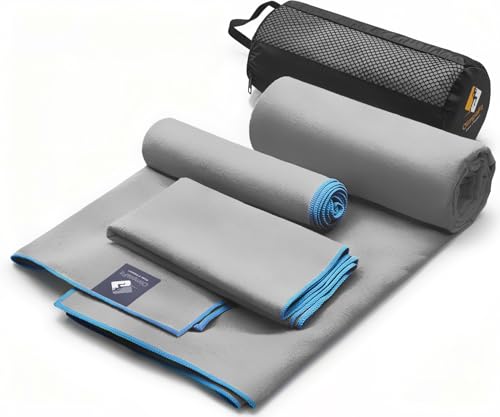If you’re new to endurance sports, you might be wondering what to expect from an endurance coach. Or, if you’re a seasoned athlete, you might be looking to switch coaches and want to know what you should be looking for. Either way, having an endurance coach can be a game-changer for your performance and overall experience as an athlete.

Endurance coaching involves more than just creating a workout plan. A coach can help you set and achieve your goals, provide guidance on proper nutrition and recovery strategies, and offer support and motivation throughout your training. With the right coach, you can develop a customized training plan that takes into account your strengths, weaknesses, and lifestyle, and helps you reach your full potential.
Key Takeaways
- Endurance coaching involves more than just creating a workout plan.
- A coach can help you set and achieve your goals, provide guidance on proper nutrition and recovery strategies, and offer support and motivation throughout your training.
- With the right coach, you can develop a customized training plan that takes into account your strengths, weaknesses, and lifestyle, and helps you reach your full potential.
Understanding Endurance Coaching
https://www.youtube.com/watch?v=CeUpovXJXVs&embed=true

If you’re new to endurance sports, you may be wondering what to expect from your endurance coach. Endurance coaching is a specialized field that focuses on helping athletes achieve their goals in long-distance sports such as running, cycling, and triathlon. In this section, we’ll explore the roles and responsibilities of an endurance coach, the importance of coaching experience, and different coaching styles and approaches.
Roles and Responsibilities of an Endurance Coach
An endurance coach is responsible for helping you achieve your goals in endurance sports. This includes developing a training plan that is tailored to your individual needs and goals, monitoring your progress, and providing feedback and support along the way. Your coach may also provide guidance on nutrition, hydration, and injury prevention, as well as mental training and race strategy.
The Importance of Coaching Experience
When choosing an endurance coach, it’s important to look for someone with experience in your sport and distance. A coach with experience can provide valuable insights into training and racing strategies, as well as help you avoid common mistakes and pitfalls. Look for a coach who has a track record of success with athletes like you, and who is willing to work with you to develop a plan that fits your schedule, lifestyle, and goals.
Different Coaching Styles and Approaches
Endurance coaching is not a one-size-fits-all approach. There are many different coaching styles and approaches, and what works for one athlete may not work for another. Some coaches take a more hands-on approach, providing detailed feedback and guidance on every aspect of your training. Others may take a more hands-off approach, providing a basic training plan and leaving you to execute it on your own. It’s important to find a coach whose style and approach aligns with your needs and preferences.
In conclusion, endurance coaching is an important part of achieving your goals in endurance sports. Look for a coach with experience in your sport and distance, and whose style and approach aligns with your needs and preferences. With the right coach by your side, you can achieve your goals and reach your full potential as an endurance athlete.
Building the Athlete-Coach Relationship
https://www.youtube.com/watch?v=ScNoeJ8CgUo&embed=true
As an athlete, building a strong relationship with your coach is crucial to achieving your goals. Here are some important factors to consider when building a relationship with your endurance coach.
Establishing Trust and Communication
Trust is the foundation of any successful athlete-coach relationship. You need to feel confident that your coach has your best interests at heart and is committed to helping you succeed. Additionally, open communication is essential for establishing trust. You should feel comfortable talking to your coach about any concerns or questions you have.
Feedback and Analysis for Improvement
Your coach should provide you with regular feedback on your training and performance. This feedback should be constructive and focused on helping you improve. Your coach should also be able to analyze your performance data and use it to make adjustments to your training plan.
Confidentiality and Professionalism in Coaching
Confidentiality is an important aspect of the athlete-coach relationship. Your coach should keep your personal information and training data confidential unless you have given permission to share it. Professionalism is also crucial. Your coach should conduct themselves in a professional manner at all times, both in person and online.
In summary, building a strong athlete-coach relationship requires trust, communication, feedback, analysis, confidentiality, and professionalism. By working together and focusing on these factors, you can achieve your goals and reach your full potential as an athlete.
Developing a Customized Training Plan
https://www.youtube.com/watch?v=ERv3PJJK9lw&embed=true
To help you achieve your endurance goals, your coach will develop a customized training plan tailored to your abilities and goals. This plan will be designed to improve your endurance, speed, and overall fitness. Here are some key elements that your coach will consider when developing your customized training plan.
Assessment of Athlete’s Abilities and Goals
Your coach will start by assessing your current fitness level and your goals. This will involve an evaluation of your strengths and weaknesses, as well as your endurance, speed, and overall fitness. Based on this assessment, your coach will develop a customized training plan that is tailored to your specific needs and goals.
Incorporating Strength and Conditioning
To improve your endurance, your coach will incorporate strength and conditioning exercises into your training plan. This will help you build muscle, improve your overall fitness, and reduce your risk of injury. Your coach will work with you to develop a strength and conditioning program that is tailored to your specific needs and goals.
Monitoring Progress and Adjusting Workouts
Your coach will monitor your progress throughout your training program and adjust your workouts as needed. This will help ensure that you are making progress and achieving your goals. Your coach will also help you stay motivated and on track by providing feedback, encouragement, and support.
In summary, a customized training plan is essential to achieving your endurance goals. Your coach will assess your abilities and goals, incorporate strength and conditioning exercises, and monitor your progress to ensure that you are making progress and achieving your goals. With the help of a skilled endurance coach, you can achieve your full potential and reach your goals.
Nutrition and Recovery Strategies
https://www.youtube.com/watch?v=317W2zrQh-M&embed=true
« 7 Easy Tips to Prevent Muscle Cramps: What to Eat After Exercise
What to Keep in Your Bike Bag: Essential Items for Every Cyclist »
As an endurance athlete, you know that proper nutrition and recovery techniques are essential for achieving optimal performance and preventing injuries and burnout. In this section, we will explore the role of nutrition in endurance training and the recovery techniques that can help you achieve your goals.
The Role of Nutrition in Endurance Training
Nutrition plays a crucial role in endurance training. Proper nutrition helps you maintain energy levels, prevent fatigue, and optimize recovery. Here are some essential nutrients that you should include in your diet:
Carbohydrates: Carbohydrates are the primary source of energy for endurance athletes. They provide the necessary fuel for your muscles during training and competition. Complex carbohydrates, such as whole grains, fruits, and vegetables, are the best sources of carbohydrates.
Protein: Protein is essential for muscle recovery and repair. Endurance athletes need more protein than sedentary individuals to repair the damage caused by exercise. Good sources of protein include lean meats, fish, eggs, and dairy products.
Healthy Fats: Healthy fats, such as omega-3 fatty acids, can help reduce inflammation and promote recovery. Good sources of healthy fats include nuts, seeds, avocados, and fatty fish.
Hydration: Proper hydration is essential for endurance athletes. Dehydration can lead to fatigue, cramps, and impaired performance. Make sure to drink plenty of water before, during, and after exercise.
Recovery Techniques to Prevent Injuries and Burnout
Recovery is just as important as training for endurance athletes. Proper recovery techniques can help prevent injuries and burnout, and optimize performance. Here are some recovery techniques that you should include in your training plan:
Rest and Sleep: Rest and sleep are essential for recovery. Make sure to get enough sleep and rest between training sessions. Aim for at least 7-8 hours of sleep per night.
Foam Rolling and Stretching: Foam rolling and stretching can help reduce muscle soreness and improve flexibility. Incorporate foam rolling and stretching into your training plan.
Massage Therapy: Massage therapy can help reduce muscle tension and improve circulation. Consider getting a massage once a week or once a month.
Active Recovery: Active recovery involves low-intensity exercise, such as walking or cycling, to promote recovery. Incorporate active recovery into your training plan on rest days.
In conclusion, proper nutrition and recovery techniques are essential for achieving optimal performance and preventing injuries and burnout. Make sure to include these strategies in your training plan to achieve your goals and become a successful endurance athlete.
Engagement and Community Involvement
https://www.youtube.com/watch?v=eRTN8935B4k&embed=true
As an athlete, you want to feel supported and encouraged by your endurance coach. One way that coaches can create a supportive environment is by being actively engaged in the community. This can include participating in races and community events, as well as creating a supportive team environment.
Creating a Supportive Environment for Athletes
Your endurance coach should be committed to creating a supportive team environment that fosters growth and success. This means creating a space where athletes feel comfortable asking questions, seeking advice, and sharing their successes and challenges.
Your coach should also be available to answer questions and provide guidance outside of scheduled training sessions. This can include responding to emails, texts, and social media messages in a timely manner.
Participation in Races and Community Events
Another way that coaches can be engaged in the community is by participating in races and community events. This shows that they are committed to the sport and the community, and it can also provide an opportunity for athletes to connect with their coach outside of training sessions.
Your coach may also organize group runs or rides, or participate in charity events as a team. This can help to build camaraderie and a sense of community among athletes.
Overall, engagement and community involvement are important factors to consider when choosing an endurance coach. By creating a supportive environment and participating in races and community events, your coach can help you to reach your goals and become a better athlete.
Frequently Asked Questions
https://www.youtube.com/watch?v=iSqNaO1bBIA&embed=true
How does an endurance coach help improve my athletic performance?
An endurance coach can help you improve your athletic performance by creating personalized training plans that are tailored to your specific goals and fitness level. They will work with you to identify areas where you can improve and develop a plan to help you reach your full potential.
What type of training plans might an endurance coach create for a runner?
An endurance coach might create a variety of training plans for a runner, depending on their goals and fitness level. These plans might include interval training, hill repeats, tempo runs, long runs, and recovery runs. They will also consider factors such as your schedule, injury history, and other commitments when creating your training plan.
Can you describe a typical coaching session with an endurance coach?
A typical coaching session with an endurance coach might involve reviewing your progress, discussing any challenges you’re facing, and setting new goals for the upcoming week or month. Your coach may also provide feedback on your form, offer tips for improving your performance, and answer any questions you have about your training.
What qualifications should I look for in an endurance coach?
When looking for an endurance coach, it’s important to look for someone who has experience working with athletes at your level and who has a strong understanding of exercise physiology and sports nutrition. Look for coaches who are certified by reputable organizations such as the National Strength and Conditioning Association (NSCA) or the American Council on Exercise (ACE).
How does an endurance coach use tools like TrainingPeaks to track progress?
Endurance coaches often use tools like TrainingPeaks to track their athletes’ progress and monitor their training. They can use this data to make adjustments to your training plan and ensure that you’re making progress toward your goals. Coaches may also use TrainingPeaks to communicate with their athletes and provide feedback on their workouts.
What kind of communication and feedback can I expect from my endurance coach?
Communication and feedback will vary depending on the coach and the athlete, but most endurance coaches will provide regular feedback on your training, answer any questions you have, and offer support and motivation to help you stay on track. You can expect your coach to be available for communication via email, phone, or text, and to provide regular updates on your progress.










